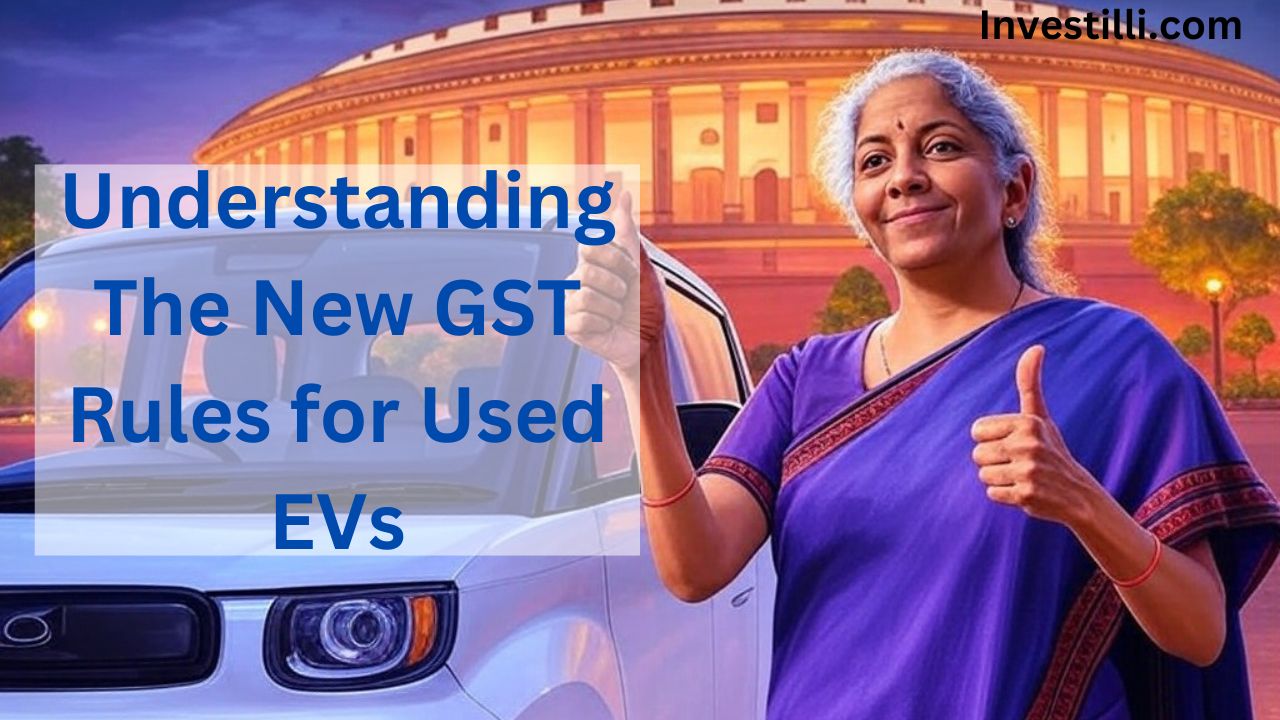55th GST Meeting held on 21st December, 2024 in Jaisalmer where Finance Minister Nirmala Sitharaman provided significant updates on the Goods and Services Tax (GST) concerning used electric vehicles (EVs), aiming to clear up public confusion and address misinformation. This clarification comes at a time when India is aggressively promoting electric mobility to reduce carbon emissions and promote sustainable transport options. Here’s what you need to know about the new GST rules on used EVs.
GST on Used Electric Vehicles: The Basics
The GST Council, which is responsible for deciding the tax rates and rules under the GST regime, has made a distinction between individual and business transactions when it comes to used electric vehicles.
-
Individual Transactions: Finance Minister Sitharaman announced that no GST would be levied on used electric vehicles when they are sold between individuals. This decision effectively removes a financial barrier that might have discouraged the secondary market for EVs, encouraging more people to participate in the circular economy of electric vehicles.
-
Business Transactions: However, when businesses are involved in the buying or selling of used EVs, an 18% GST will be applicable. This tax is not on the full sale price but on the margin value, which is the difference between the purchase price and the selling price of the vehicle. This approach aligns with how GST is applied to other used goods sold by businesses, ensuring a level playing field.
Implications for Consumers and Businesses
For Consumers:
-
The absence of GST on individual sales of used EVs could lead to a more vibrant secondary market. It reduces the cost of ownership, making electric vehicles more accessible to a broader audience. This could accelerate the adoption rate of EVs, as affordability is often cited as a significant barrier to entry.
-
It also means that individuals looking to upgrade or sell their used EVs will not have to factor in an additional tax burden, potentially increasing the resale value of their vehicles.
For Businesses:
-
Businesses dealing in used EVs will need to adjust their pricing models to account for the 18% GST on the margin. This might slightly increase the cost for end consumers but maintains a fair taxation system where businesses contribute to the tax pool.
-
The clarification provides businesses with clear guidelines, reducing the risk of non-compliance and subsequent penalties. It also encourages companies to engage in the trade of used EVs, which can be part of broader sustainability strategies, including vehicle refurbishment and upcycling.
Addressing Misinformation
This announcement from Sitharaman was crucial in countering widespread misinformation regarding the taxation of used electric vehicles. There had been confusion, with some believing that all transactions of used EVs would attract GST, potentially deterring both sellers and buyers. By clarifying the tax regime, the government aims to foster transparency and trust in the GST system, particularly in sectors pivotal to environmental sustainability like electric vehicles.
Conclusion
The GST updates on used electric vehicles reflect a nuanced approach by the Indian government to support the growth of the EV sector while ensuring tax compliance. For individuals, the no-GST policy on peer-to-peer sales is a clear incentive to embrace electric mobility. Meanwhile, businesses must navigate the 18% GST but can do so with the advantage of clear regulations. This move not only aids in making EVs more economically viable but also supports India’s broader environmental goals by promoting a greener transport ecosystem.
Here are the top 5 FAQs
1. Will GST apply to the individual sale of used electric vehicles (EVs)?
